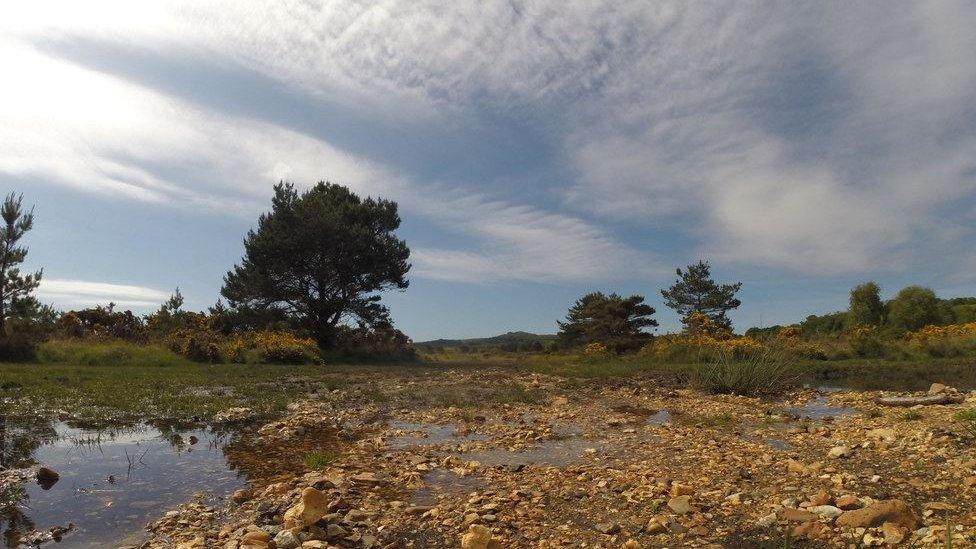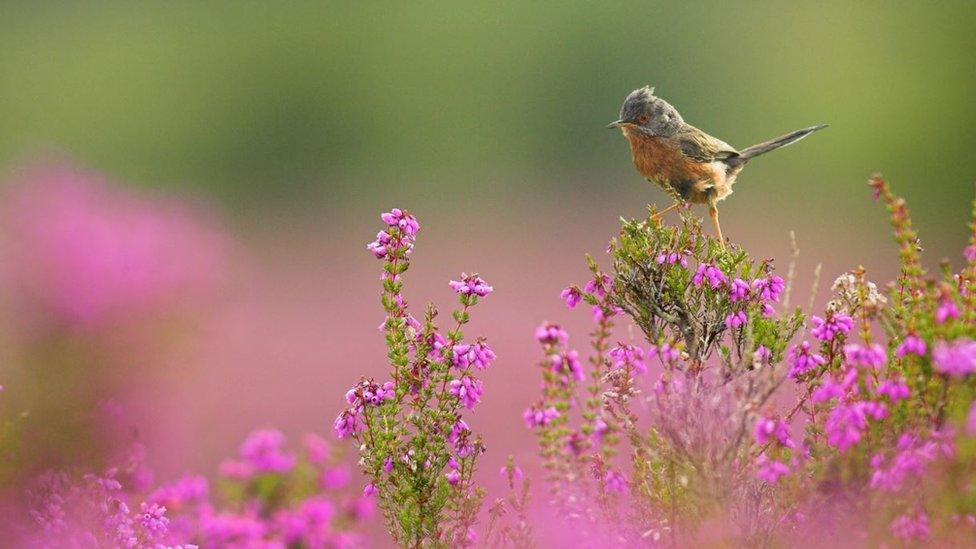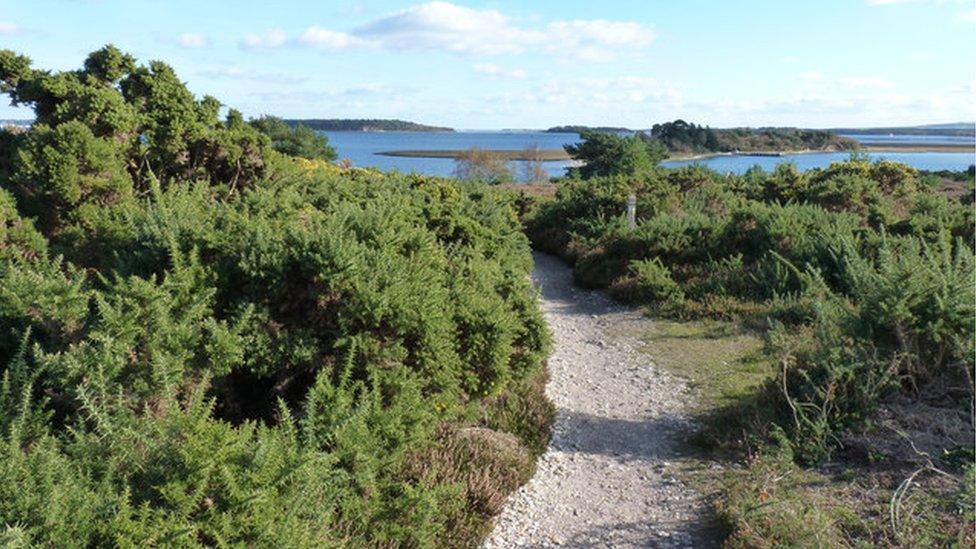Stoborough Heath sewage spill: Wessex Water pays £35,000 for restoration works
- Published

About 100m (328ft) of Stoborough Heath was affected following the sewage spill in 2018
A water firm has paid £35,000 for restoration works after sewage spilled into a ditch at a nature reserve.
About 100m (328ft) of Stoborough Heath, in Wareham, Dorset - which is home to the Dartford warbler bird - was polluted when Wessex Water's sewer main burst at the site on 23 January 2018.
It had a "severe impact" on wildlife, the Environment Agency said.
The cash will be spent on projects at nearby Lytchett Fields and Arne reserves.
Wessex Water has also spent £50,000 installing a burst detection system along the main that caused the pollution.
Janine Maclean, from the Environment Agency, said it would "ensure any future bursts will be detected earlier and prevent significant damage".

Stoborough Heath is home to the Dartford warbler
There were raised levels of ammonia and sewage fungus in the ditch following the spill at Stoborough Heath, which is jointly owned and managed by the Royal Society for the Protection of Birds (RSPB) and Natural England.
However, there was no impact on the main watercourse, the Environment Agency added.
It accepted Wessex Water's offer of £25,000 to the RSPB, which will spend the money on ditch and wetland habitat restoration at Lytchett Fields, Poole, and heathland management at Arne in Wareham.
The firm also offered £10,000 to Dorset Wildlife Trust as a contribution towards works as part of the Poole Harbour Catchment Partnership Project.
In a statement, a spokesman described the spill as "regrettable".
"We immediately fixed the problem and an ecology report carried out at the time showed no impact on the main watercourse," he added.
"Our approach is always to improve and enhance the environment and, on the rare occasions things go wrong, put it back in a better position than it was before the problem occurred."

RSPB Arne nature reserve, next to Poole Harbour, is one area where the cash will be used